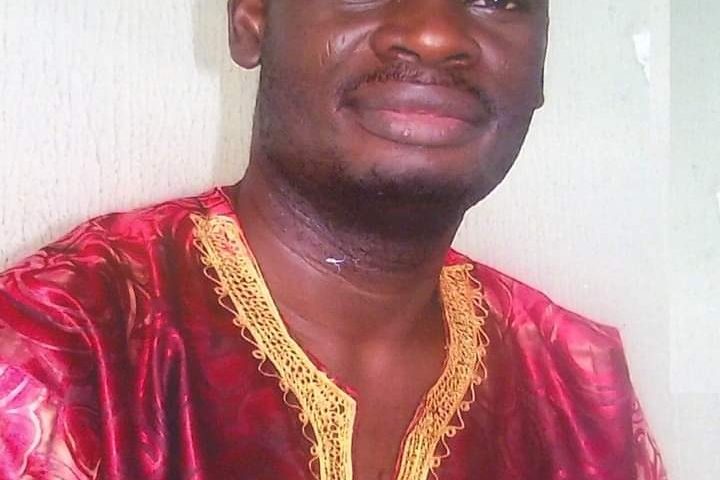By Sunny Awhefeada
Childhood remains for many a moment of healing nostalgia to which one can always escape and get recreation, albeit momentarily. The innocence which dominates childhood precludes one from the buffetings of life and the consequent existential crisis that trails such lashings. Poverty or riches, comfort or homelessness, parented or orphaned; childhood is one vast landscape of play and happiness that shrinks with the passage of time and age.
As childhood recedes, one is confronted by what life really is. Life is a struggle. From squabbles with parents and siblings and tiffs with friends, the turf of life’s struggles unfolds and opens up new and strange theatres of engagements, private and public, personal and political and then the entanglement between the individual and the state begins. In Nigeria, our beloved, but much abused country, that engagement between the individual and the state has been nightmarish. For my generation, that nightmare began around New Year day in 1984. The preceding four years were idyllic or so we thought. In those four years, we had free education, free books and were served food in our primary school. Healthcare was also free and we thought we had everything good. We had no worries. From my staying at Oke-Ado in Ibadan to my relocation to Evwreni near Ughelli, life was good and enjoyed abundantly. And the beauty of life reflected in many of the songs we sang on the school assembly ground, whether in Ibadan or in Evwreni.
But all that changed in 1984, the year that brought back pestilent soldiers to power. From the benefit of hindsight, it was not that those at the helms of affairs in the previous four years were saints. No! They actually created the mess that the pseudo-messianic soldiers claimed to have come to clean up. But at the end of that century, 1999, when the soldiers left Aso Rock, it dawned on Nigerians that the politicians who ran the nation from 1979 to 1983 were political “angels” compared to the men in khaki. It was in 1984 that beverages, butter, bread and related items vanished from our tables. Rice, chicken, groundnut oil and other delicacies also took leave of our kitchens and hunger set in. Our parents, uncles and aunts would complain very loud, may be so that we would hear and adjust our eating habits, that the prices of things were so high they were becoming “unreachable”. The prices never went down. It was around that time that the word “inflation” entered our consciousness.
I recall complaints and sad faces of young graduates who were roaming the streets in search of jobs. Unlike a few years before when employers of labour went to offer jobs to final year students while still on campus. A lot of things were going wrong. We heard of human rights violations. We heard of politicians being jailed for 360 years! The rhythm of life changed and too suddenly. The soldiers were draconian and they ruled a trembling nation at gun point. The people watched as the soldiers made the situation worse than what they met it. Then in the August of 1985, another band of political adventurers in uniform removed the ruling clique. The nation rejoiced as the new rulers promised to restore Nigeria to the path of greatness. It was a morally and psychologically atrophied people that welcomed the new rulers in anticipation of everything good returning.
Unfortunately, nothing good came. Political perfidy and large scale economic corruption became the order of the day. In no time, the people delivered a verdict that the previous government was better than the one before it which was considered better than it. Thus Nigeria fell into the whirlpool of existential political crises from which it is yet to recover. The nation swirled and swirled. Coups, executions, violence, uprisings, crime, more violence, corruption, poverty, shrinking values and collapse of civic culture became the order of the day. The country became a nation nobody loved.
Then a propitious dawn came in 1999 which was the eve of not just a new century, but a new millennium. We were upbeat and anticipatory of a new order hoping that we had learnt from the failure and pains of the past. But that was not to be.
Those who seized the new dawn were the same forces who hijacked the destiny of the nation in 1966. They merely discarded their uniforms and wore billowing agbada under which they concealed AK 47 rifles, the tool of soldiery. Nothing changed. They subjected the nation to another round of political torture, marginalization and exploitation. The cumulative result of those deeds is what is rocking our boat of nationhood now.
The bloodbath occasioned by Boko Haram, Fulani herdsmen and bandits; the trauma of rape and kidnapping and other frightening vistas of insecurity which government has not been able to redress point to the failure of the Nigerian state. Nothing works here.
The people are so depraved that they now think of Nigeria only as a booty from which so much can be stolen. Nobody thinks of Nigeria for the good of Nigeria anymore.
Nationalism is dead. The response of Nigerians to the disaster of COVID-19 as scam speaks to the grave disconnect between government and the governed. Government is a thief. Massive stealing is going on.
Our roads, schools and hospitals are in very bad shape. The nation appears like an ungoverned space. The crises in the ruling All Progressives Congress (APC) reflects the state of Nigeria. In all of these, where is the Nigerian president? Do we still have a president? The present is harsh and unacceptable. Let me escape into memory.





